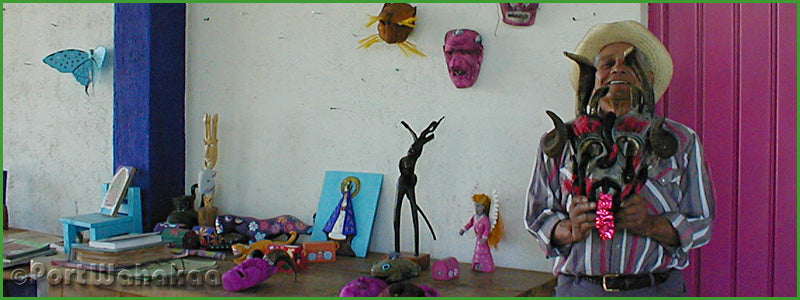Oaxacan Wood Carvings of San Martin Tilcajete
One of the most expansive of all the carving villages and arguably the oldest. They say it was San Martin that supplied the corn to the builders of Monte Alban. Visit at high noon and you will be able to spread out your walking legs as many will be indoors due to the suns intensity.
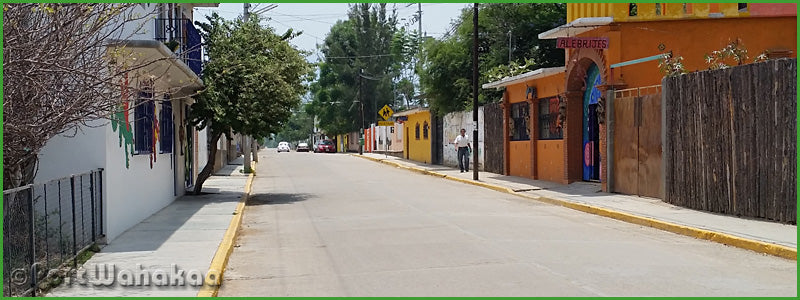
An agricultural base that either gets too much water or too little. These days people are more conscientious about how the water is managed.
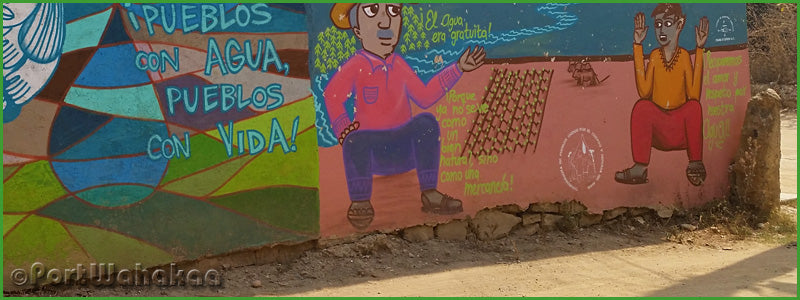
Bougainvilleas line a maze work of streets and small bridges. Many people tend their own gardens. The heat is intense at mid day keeping most folks indoors.

From time to time you will see the workshop tiendas open for business with a lizard or painted cactus adorning the entrance to metal doors and brightly painted walls with murals. Or not entirely finished buildings of concrete with temporary doors.
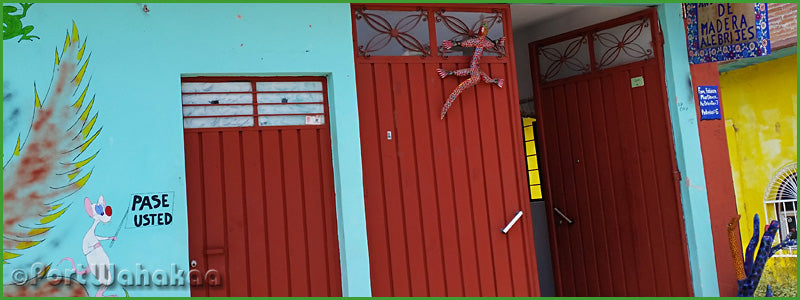
While many of the artists are friendly the one of the most amicable and personable is Innocencio Vasquez. His festival diablos positioned in chairs and nahuals have been his mainstay for several decades. To him they are depictions of real supernatural creatures seen infrequently. He’s a wealth of information on these subjects of shape changers. His pieces tell a story part about the invisible world around us.

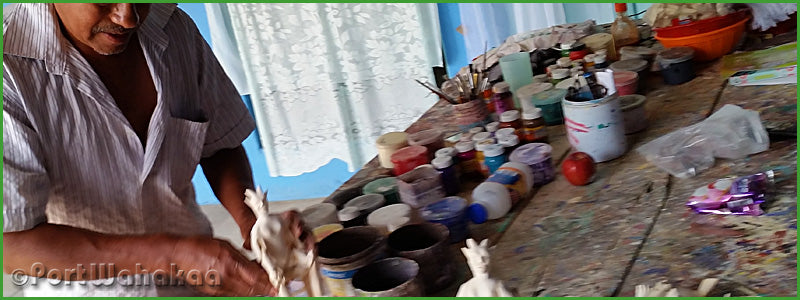
As we mentioned before San Martin has no shortage of perros and as you roam about town you will surely walk into their turf. Here is a puppy we encountered that just wanted to say hello.
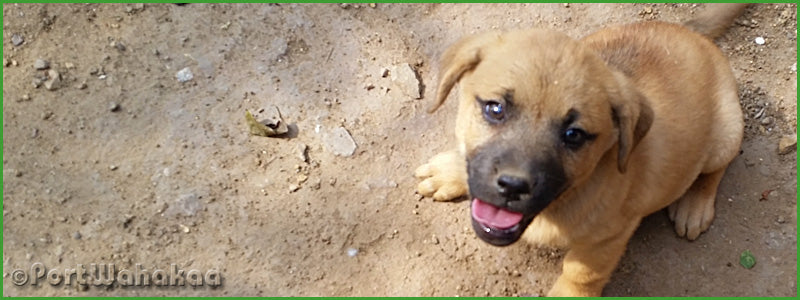
From time to time you will see the workshop tiendas open for business with a lizard or painted cactus adorning the entrance to metal doors and brightly painted walls with murals. Or not entirely finished buildings of concrete with temporary doors.
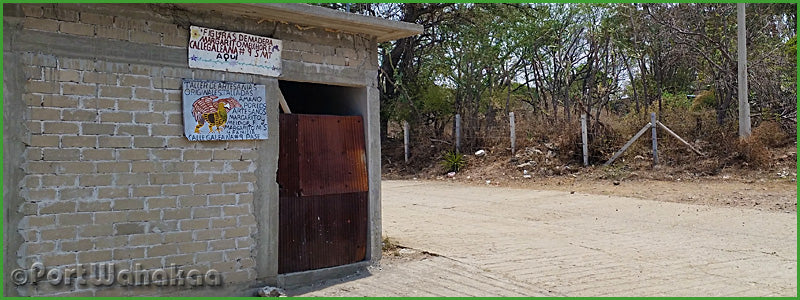
Two of the greatest painters Roberta Angeles (Left) and Maria Jimenez (Right) are the masters of the floral patterns. While they like to tout their larger works it’s actually the smaller pieces that show off their uniquely individual pattern woven styles. These two have inspired three generations of Oaxacan carving artists working around them.
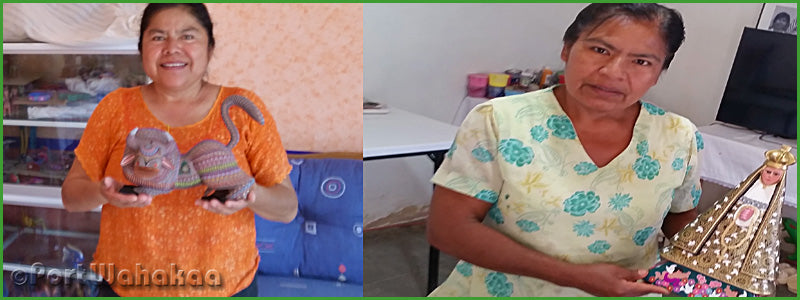
Back in 2004 we were lucky to run into Isidoro Cruz who was very engaging at the time, full of humor and spirit. He is one of the very last to use the aniline dyes which were the predecessor of Acrylic painted works. His stories of witches, nahuals, devils, and angels seen in the area over the years is expansive. He’s a legend of his village on par with Manuel Jimenez of Arrazola and Gabino Reyes of La Union.
